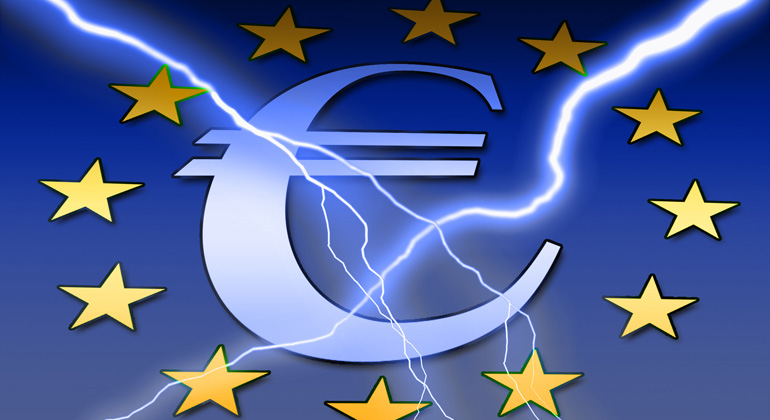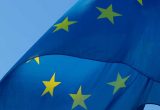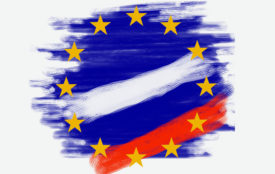REVEALED: EU fund paying coal lobbyists’ wages
While European leaders debate a climate neutral EU by 2050, an obscure EU fund is being used to pay the wages of coal lobbyists and promote coal use in developing countries like India and China.
Documents obtained under access to information laws as part of a META investigation reveal how EU money from the European Commission’s ‘Research Fund for Coal and Steel’ is being used to pay the wages of staff at Euracoal, the European coal industry’s lobbying group in Brussels.
The ‘CoalTech2051’ project, which started in July 2018 and does not involve any new research, aims instead to create “a professional network for the exchange of knowledge and experience on coal-related research and development: a European Network of Clean Coal Technologists” and cooperate with groups from outside in the EU including India, China and Indonesia.
Christian Schaible, a policy manager at the EEB, said the money was just being used to create a ‘lobby club’.
Schaible told META: “If you read the proposal it’s clear that this project is just a vehicle to spend EU money on promoting coal, which is astonishing given all we know about how incompatible coal is with avoiding climate breakdown.” He continued:
“Clean coal is a myth, coal is an inherently dirty fuel and the EU doesn’t need to have – let alone fund – a new lobby club for one of the world’s most polluting fuels.”
Last year ClientEarth and the EEB were forced to intervene in the courts after Euracoal tried to sue the European Commission for updating air pollution limits on coal power plants. The coal industry’s case was later thrown out but Schaible says the fact they would rather sue the EU than reduce emissions proves they don’t even believe their own “fairy tale” about clean coal:
“What’s incredible was that Euracoal was willing to take EU funds to promote ‘clean coal’ while at the same time suing the European Commission for trying to cut harmful emissions.”
The CoalTech project includes the costs of seven months of pay for a ‘Senior Manager’ at Euracoal and includes a €6,000 budget to “help cover the travel and subsistence expenses of invited non-EU speakers” to project events held across Europe.
The project proposal lists potential to expected participants in workshops including five Chinese and two Indian organisations.
In total Euracoal was awarded almost €85,000 of the more than a third-of-a-million Euro total project budget. There was no requirement for co-financing – a common practice where EU funds must be matched by money from other sources.
Project funding was also provided to the ‘IEA Clean Coal Centre’, based in the UK, and two research institutes in Poland and Greece.
The money comes from the EU’s Research Fund for Coal and Steel (RFCS), which is a €1.6bn legacy of the European Coal and Steel Community (ECSC). When the ECSC was dissolved in 2002 its remaining assets were used to establish the RFCS is to support “research and innovation projects in coal and steel sectors”.
Conflict of interest?
Campaigners say that questions of conflict of interest must be raised as some of the organisations that benefit from the RFCS’s €40 million per year funding also sit in a group that advises the Commission on how the money is spent.
The ‘Coal Advisory Group’ (CAG) sets priorities and reflects on project proposals and includes representatives of Euracoal as well as major European coal utilities RWE and CEZ Group. Both German RWE and Czech CEZ were listed among the ten ‘most toxic’ coal companies in a report last year. RWE received more than half a million Euros for a project in 2017.
The fund came into the spotlight in January when Greenpeace Unearthed revealed its existence, which triggered META’s request for the release of additional documents from the European Commission.
Campaigners say that the fact that RWE and European coal industry lobbyists Euracoal are both members of the Coal Advisory Group and also beneficiaries of research fund money, presents clear questions about potential conflicts of interest.
Euracoal denies that the RFCS is ‘EU funds’ and says it is made up of money raised from past levies on the coal and steel industries.
A spokesperson for Euracoal also rejected the idea there was any conflict of interest, telling META: “The Coal Advisory Group does not decide which project proposals are supported. This is decided by a legally defined process managed by the European Commission who employs expert reviewers in a similar manner to the way EU research programmes are managed. The Commission follows a fully transparent procedure, whereby the best projects in terms of excellence, impact, quality and efficiency of the implementation are selected for funding each year, following an open call for proposals.”








